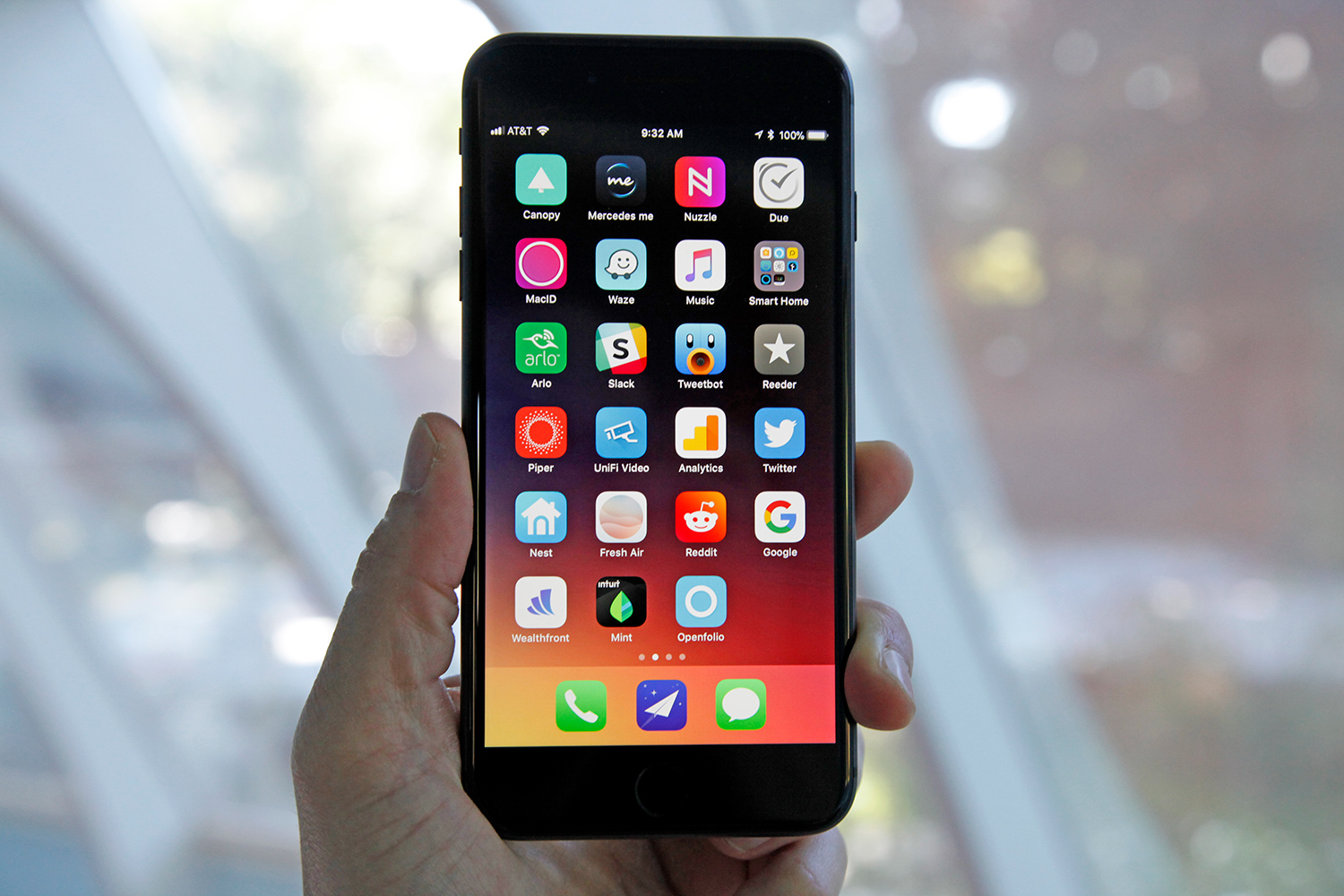
Image Source: Zach Epstein, BGR
Posted on 10/04/2017 11:38:24 PM PDT by Swordmaker

The A11 Bionic moniker may admittedly be nothing more than a marketing gimmick, but Apple’s next-gen processor is nothing short of a monster. In the days leading up to and following Apple’s iPhone media event, the iPhone 8 Geekbench 4 scores from Primate Labs’ Geekbench test were truly jarring. So while iOS and Android have arguably come close to reaching feature-parity in recent years, the overall system performance provided by Apple’s custom-designed A-x processors continues to leave Android handsets in the dust.
In fact, with Apple’s new flagship iPhone models running more than 50% faster than top of the line Android handsets in some tests, Primate Labs founder John Poole can’t help but wonder why we’re only seeing huge performance improvements emanating from Apple.
“The thing that I don’t fully understand is why performance has seemed to stagnate on the Android side,” Poole said in an interview with Tom’s Guide. “Where you don’t see these big leaps forward. I don’t understand what’s happening there.”
“At this point, you’ve got desktop-class performance in a handset. There’s no way of looking at it any other way,” Poole later added. “I wouldn’t have thought to use my first-generation iPhone to edit video. I would’ve thought you were crazy.”
Even though most iPhone users may not necessarily need to take advantage of all the processing power afforded by Apple’s next-gen processor, the larger point is that Apple is better positioned than its Android counterparts for the future of mobile computing.
Indeed, Apple’s decision to bring chip development in house has turned out to be one of Steve Jobs’ shrewdest decisions. As Apple chip guru Johnny Srouji said earlier this month, “This is something we started 10 years ago, designing our own silicon, because that’s the best way to truly customize something that’s uniquely optimized for Apple hardware and software.”
I don’t think you are programming anything for iOS. . . Or you wouldn’t be making these claims. Apple provides the APIs and the compilers for their devices. You aren’t allowed to hit the Apple device processors directly, not if you want your apps to be accepted on the Apple App Store.
Android is a free-for-all where you can do that. . . So it’s pretty obvious where you program.
I see a hell of a lot of ignorance feeding itself on the Slashdot thread.
I think the comment that sums up the totality of the thread was that once the Geek Bench started showing Apple beating the bunch in everything, these clowns started claiming that Geek Bench Marks were not good for anything. . . And “talk about being delusional.”
Geek Bench Marks have been the standard in cross platform comparisons. It has not been found unreliable as these wanna-be’s are claiming with zero evidence.
It’s not as automatic as you think
You are really quick with the Googling, aren’t you, dila813? Your attempt to again show expertise on something you are really not familiar with falls flat. Did you perhaps notice the DATE on this article you Googled? I thought not. It’s July 12, 2011. Six and half years ago, . . when such multithreading was in its infancy on iOS and XTools was not at all sophisticated as it is today. . . and the APIs were in the dozens, not hundreds. Nice try, close, but no banana.
I was trying to get something that is easy to understand, why don’t you link what you like that you think shows how the compiler utilizes artificial intelligence to rewrite the program and optimize it for shifting between 4 and 6 cores.
Still waiting for your fantastic link of automatic multithreading with iOS 11 for those compiling their applications for Apple.
iPhone vs android: Dial 555-555-5555
Which is faster connecting a call and how clear is the speech heard?
I don’t use either for voice calls, I use Google Voice for both
Disclaimer: Opinions posted on Free Republic are those of the individual posters and do not necessarily represent the opinion of Free Republic or its management. All materials posted herein are protected by copyright law and the exemption for fair use of copyrighted works.